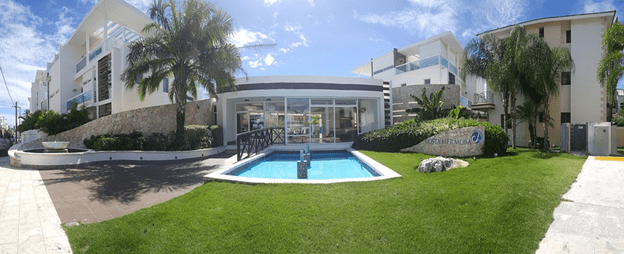Table of Contents
After staying indoors for two years due to the Covid-19 pandemic, people want to travel for holidays or business. This means the tourism industry will flourish, and the demand for vacation rentals will surge. Investors generate decent passive real estate income from renting out these vacation homes for a few days or months.
Thus, short-term rental property investment is a good and popular option. Novice investors who want to jump into the real estate space must be ready to operate within the guidelines set by cities and states.
Most short-term rental property companies like Airbnb, Booking.com, and VRBO have capitalized on the demand for vacation rental properties. And, they are making outsized profits in some areas.
This complete manual provides in-depth insight into short-term rentals for the first time. Beginners and seasoned investors can use the information to develop their own short-term rental strategy.
Let’s get started.
What is short-term rental property?
Short-term rentals refer to properties that allow people to live anywhere they want, whenever they want. It’s a property you lease for a day or more when you’re on vacation or a business trip. Vacation homes and Airbnb are short-term rental properties located primarily on tourist destinations.
Techvestor investment experts inform us that it helps involve experienced and well-versed personnel to invest correctly.
As a result, homeowners have gotten into this industry, where they rent out their properties to retirees, millennials, or business persons for a few days to make extra income. Thus, many people are renovating their properties to accommodate the increased demand from guests who want a nomadic lifestyle.
Although short-term properties are great investments, it requires a thorough understanding of an investment option and how to manage them.
Rewards and risks of investing in short-term rentals
Some of the popular searches on Google are mostly about investing in short-term rentals. Novice investors want to find answers to questions such as:
- How to buy a rental property?
- Investing in a rental property for beginners
- How to make money with rental properties?
- How to buy your first rental property?
- Are rental properties a good investment?
- How to find investment properties?
- Investing in vacation rental property
Like other investment options, short-term rentals have rewards and risks. Therefore, beginners want to know whether vacation rental properties are good for them. The following are the rewards and risks of short-term investments.
The rewards
It’s more flexible
Investors make their property available whenever they want and adjust the rental prices anytime. You can hire a property manager or outsource some operations to a third-party property management company instead of managing it yourself. Such high flexibility makes short-term vacation property a good investment option for a beginner or out-of-state investor.
Have better returns
Hotels and resorts are pretty expensive, and people are looking for ways to save money when traveling or on vacation. This explains the high demand for vacation rental properties, particularly by frequent travelers.
You can rent out the property anytime there is a guest, and at different rates depending on:
- The time of the year
- Ongoing events.
- The amenities you offer
- The location of your property
At the same time, short-term rental properties have better returns than traditional rentals, especially those located in popular places. You can rent your property several times a month and earn better returns than apartments.
Tax breaks and deductions
Short-term property owners enjoy different tax breaks and deductions than most long-term rental property owners. There are many tax advantages you can enjoy from your rental property investments.
The risks
Higher utility payments
Long-term rental property tenants pay their monthly utility bills. On the other hand, short-term rental owners take care of all utilities even when they don’t get bookings.
They also have to maintain the property in top-notch condition regularly to attract more guests. This does add to expenditure.
Labor-intensive
There is a lot that property owners or managers do before they get guests. You must keep the property clean, market it, communicate with guests, manage bookings, collect payments, handle guest feedback, maintain the property, etc. Therefore, you must be ready to put in more effort.
Investing in a rental property for beginners – Step-by-step guide
You must have realized that the rewards of short-term rentals outweigh the risks. Now that you want to proceed and buy your property, here are a few steps to follow:
Step 1: Set your investments goals
Goals are important in each business venture. So, list your short-term and long-term goals and track your progress.
Step 2: Put your finances in order
Real estate investments require considerable capital. You can finance the purchase of your first vacation rental property through savings or financing options. Apart from the initial cost of buying a property, you also need funds to hire a property manager, run marketing, make necessary improvements, and maintain the rental property.
Step 3: Pick a popular location
Not all rental properties are popular and can generate good returns. Pick the right location based on the current market conditions. Rely on research findings, not hearsay, when picking your investment property.
Step 4: Do due diligence
Today, real estate leverages technology to give buyers and sellers a seamless experience. You can find relevant information and data about a property on various platforms. Use the information to narrow your options and pick the best property market, type, and rental rates.
Step 5: Select a profitable property
Select the property based on your investment criteria and goals. It’s essential to consider the neighborhood data, property type, rental rates, etc.
Step 6: Ensure the numbers add up
Your rental property investment cost and returns should add up. Otherwise, consider a different strategy. Use the 1% rule to establish whether investing in this rental property is an excellent prospect to generate income.
Step 7: Improve or update your home if necessary
Proceed if the math checks and close the deal. Next, make necessary improvements and updates to attract potential customers. Then, launch your Airbnb or furnished short-term rental business.
Step 8: Set a competitive price
The due diligence research and findings should help you to set a competitive rental price. It also guides you towards offering your first guests a special discount package. Ensure you stand out from your competitors in online listings.
Step 9: Develop a marketing plan
Create a sound marketing plan to help your property stand out and get more bookings. Your management strategy should also elevate your business and keep it running despite occasional setbacks.
Step 10: Set up a team
Running a new short-term rental property business alone may be overwhelming. You can set up a team with good experience to help you manage your rental property investment or handle daily operations.
Step 11: List your property on Airbnb platforms
Market your property to increase occupancy rate and income. Provide an accurate listing description and professional-grade pics, and set a competitive price.
Wrapping up
Short-term rentals are good investment options for both novices and seasoned real estate investors. You can earn a generous passive real estate income when you invest in the right property and develop an effective rental strategy.
So then, if you have been asking, are rental properties a good investment for novices? Then the answer is yes. Our complete manual above will help you to get started on the right foot.





